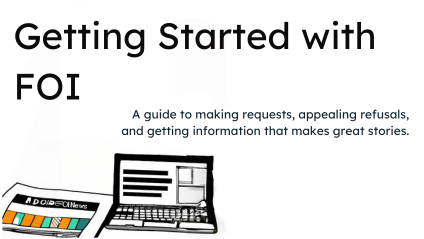It shouldn’t.
All the guidance is that the pre-election period, when some public bodies need to be careful about what they communicate, shouldn’t impact on FOI requests. But that hasn’t always been the case.
What is the pre-election period?
The pre-election period of sensitivity (to give it its full title) happens in the weeks before an election and affects what ministers, civil servants and local government can say and do. This can also be known as a period of ‘heightened sensitivity’, or, previously, as ‘purdah’ (we don’t call it that anymore).
Guidance for civil servants says the period for the general election on July 4 will start at 00:01 on May 25 (the convention for general elections is the period starts once parliament is dissolved).
Generally during this period, ministers (including those in devolved administrations), civil servants and local government should exercise caution in making announcements or decisions that might have an effect on the election campaign.
What people in these roles can and can’t do is broadly governed by convention. It usually covers things like announcing new initiatives, launching consultations, or acting in a way that could be perceived as spending public money to influence the outcome of the election.
However, one thing they definitely can do is answer FOI requests:
Requests for factual information or freedom of information requests should be dealt with in accordance with the Freedom of Information Act (FOIA).
House of Commons Library Research Briefing, Pre-election period of sensitivity
Want to send an FOI request but don’t know where to start? Or have made some requests but need help getting a response or challenging a refusal?
This guide will walk you through all you need to know.

Making FOI requests during the pre-election period
As requests should still be dealt with in accordance with the Act. According to the Scottish Information Commissioner, this means people can still request information from public bodies in the run-up to the election, and those bodies still have a duty to respond promptly and within the statutory maximum timescales – responses to requests should not be delayed because of the election.
From today (May 24), there are 29 working days till election day. And as a response should be issued within 20 working days (fingers crossed), any request made in the next few days should easily be back in time.
Does the pre-election period affect FOI requests?
As anyone who puts in FOI requests knows, just because a public body is supposed to be doing something, doesn’t mean it will.
The ICO has had to issue a Decision Notice to a council for using the pre-election period as a reason to refuse a request (and this is useful to know if you run into a public body trying to do similar).
The requester asked for information about unpaid non-domestic rates. City of York Council said it couldn’t release the information as “it could affect public support for a particular party”, and suggested the requester make the same request after the election” (the exemption relied on was Section 44 – Prohibitions on disclosure).
When the ICO got involved it took the view that the prohibition on publication relates to material that is published by, or on behalf of, a local authority, information released under FOI is published on a statutory basis so that kind of disclosure can’t be “interpreted to be the same as the publication of material by the council itself”.
The council had also argued the requester was an active member of a political party and the information related to an ongoing campaign around non-domestic rates. The Commissioner said that wasn’t relevant.
So, with this Decision Notice, confirmation that FOI releases aren’t covered by the conventions governing other communications during the pre-election period, and that’s the case even if the requester is going to use the answer to campaign.
Image by Anna Shvets on Pexels




